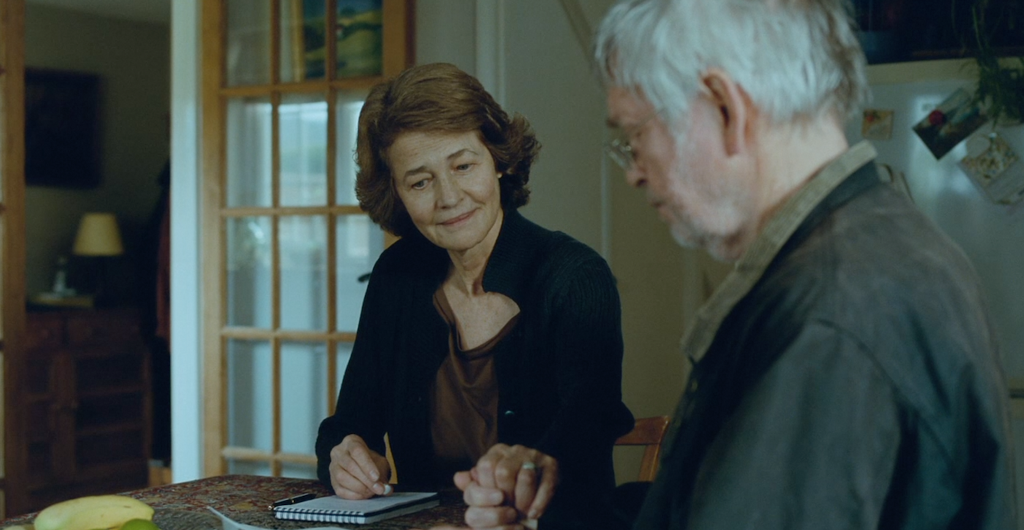My Best Self Will Be Open to Things Falling Apart

In 2016, I could and should focus more on saving, on paying off debt, or on having a set amount of money that I put aside each month rather than buying used brass instruments whenever they present themselves. I could make more of an effort to make some extra money from the artistic endeavors that consume so much of my free time. I could organize the files in my office.
Any of those things might happen in the year to come. I will try to make them happen. Something that certainly will happen is that my aunt — my father’s sister, who has been like a parent to me for many years — will die. She may be dead by the time you read this. She has pancreatic cancer that has spread a lot, and she recently stopped chemo because it wasn’t helping anymore, and it was making her miserable.
My aunt has seldom met the sort of financial-goals-for-next-year that we are talking about. She worked her way through medical school, but in Spain, over a rather long period of time, and in largely penurious conditions. She did not discharge her debts or devise any workable retirement plan until she was in her fifties, and only then because she inherited money when my grandfather died. She never married, never bought a house, never had kids. Her rented condo, where she has lived for 20 years, is chock full of books and CDs and slightly broken furniture. When I last visited her, her garage door was broken, exposing boxes and boxes of more books to a mercifully warm autumn in the usually snowy hills around Ithaca. On the previous visit, the clutch on her aged car gave out just shy of the top of one of those hills.
When news of the diagnosis broke last year, a little before she turned 70, my aunt’s prognosis was already dim. Given that fact, it was not entirely surprising that so many friends and cousins made their way to upstate New York in early spring for a surprise birthday party. But after that, she insisted on continuing her day-to-day life, and it occurred to me that her regular routine bore a striking resemblance to what I would want for my dying days: friends from all the decades of her adult life called to plan visits, to change their driving routes from here to there and stop in for lunch. Most of them weren’t even aware that she was dying. Doctors she hadn’t seen in years called to discuss unusual or challenging diagnoses. Young professors from Cornell whom she’d befriended in recent years came by to talk about books and politics and music.
The chemo was miserable—maybe too miserable for something that would buy an extra year at most—and my eminently rational aunt considered suicide. But treatment seemed to be forestalling the inevitable as much as could be hoped, and my aunt decided to stick with it, insisting she had too many books she still wanted to read. Two weeks ago, she received news that the tumors were growing again. The chemo had done all it could and she stopped it. Last weekend, over breakfast at a diner, she said to me, “I’m so glad I didn’t commit suicide. This has all been so interesting.”
I have generally been skeptical of material or financial aspirations. It’s not that dreams and ambitions are bad — they aren’t! But we live in a world where so much is beyond our control. We might invest heavily in training for an industry that suddenly becomes obsolete. An errant taxi might take our legs, our job, and our savings. One of my aunt’s favorite writers, Ta-Nehisi Coates, recently wrote:
“The more I studied, the more I was confronted by heroic people whose struggles were not successful in their own time, or at all.”
This is true for all of us, whether our struggles are heroic or ordinary. We like to imagine ourselves as protagonists, as the movie heroes dashing through crowded markets to foil a villain’s plans and save the world. But we might just be the guy whose fruit cart gets knocked over. My aunt’s financial life does not at all reflect the intensity or moral quality of her struggles. She has tried things. Things have happened. She has kept on living.
That is what I want to do in 2016: I will try to shore up my finances, of course, but like Coates says, “I have to be open to things falling apart.” There just aren’t any guarantees in the financial realm, and any bold new year’s resolution involving retirement savings or down payments seems like an invitation to disappointment. But to live like my aunt has lived seems a reliable investment: to be kind, curious, patient, and generous; to find pleasure and intellectual stimulation in whatever is at hand; to wait and see how things turn out, being ready to make do with less. She is spending her last days surrounded by friends, family, and books.
This article is part of The Billfold’s 2015 end-of-year series, “Our Best Selves in the Coming Year.”
Josh Michtom is a public defender in Hartford, Connecticut, but his writing here definitely does not reflect the views of his employer. He writes Rambling Man, the Billfold’s advice column about trying to make a living a doing the best you can.
Support The Billfold
The Billfold continues to exist thanks to support from our readers. Help us continue to do our work by making a monthly pledge on Patreon or a one-time-only contribution through PayPal.
Comments